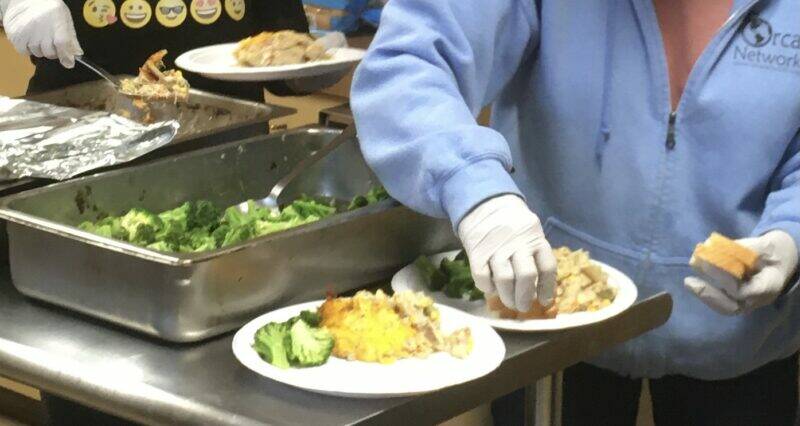An Oak Harbor nonprofit that has been feeding and assisting homeless Whidbey residents for more than a decade was awarded federal money that will allow the group to move to a new location and expand supportive services.
SPIN Cafe will receive a three-year, $636,000 grant from the U.S. Department of Housing and Urban Development. The grant is part of a $9 million package that was awarded to the state Department of Commerce for projects to address rural homelessness in nine counties.
SPIN — which stands for Supporting People in Need — is a multi-purpose organization that currently runs a low-barrier day shelter providing meals and laundry opportunities while also working with other agencies to offer a range of other services, including showers at the pool and registration for The Haven overnight shelter.
Michele Hines, the executive director of SPIN Cafe, explained that her grant application was one of ten chosen by the state Department of Commerce to go on to the federal level. All of the applications ended up being funded.
The grant will allow the organization to rent its own space, though a potential spot hasn’t been chosen yet. It will also fund utilities, staffing, training and smaller but important things like bus tickets and gas vouchers.
“We have become very intentional in how we serve our guests,” Hines said, explaining that SPIN Cafe has evolved into a resource center where people in need can be connected to government and other services while having food in a warm, sheltered place.
The program has zero tolerance for drugs and alcohol at the facility, but organizers work closely with Island County Human Services to aid people struggling with substance abuse and behavioral health problems.
Often the key to getting guests back on their feet, Hines said, is to help them navigate a range of government agencies and nonprofit services to find needed resources, whether it’s obtaining documentation for employment, treatment for drug abuse or permanent housing.
SPIN currently provides meals and shelter during the day, from Monday through Friday, at St. Stephen’s Episcopal Church as well as meals at First United Methodist Church on the weekends.
Hines said she’s extremely thankful to St. Stephen’s for allowing the group to use the parish hall for the last two years.
“The church has only charged us a utility fee, which has allowed us to re-build our programing and services while offering a warm, dry safe space for our guests,” she said. “I am not sure how we could have done what we have done without their support.”
The longer term goal, Hines said, is for the nonprofit to own its facility someday. She plans to apply in about 18 months for a capital facilities grant that would fund the purchase of a facility.
Hines explained that SPIN regularly serves about 35 homeless Oak Harbor people who are very familiar to the staff. In addition, dinner service draws as many as 50 people. They are mostly adults, she said, but occasionally families with children attend.
Across the state, the $9 million in grants will be used for a variety of assistance, including temporary rent assistance, project operation and support for emergency housing assistance, as well as permanent housing solutions.
At HUD, the funding comes from a Special Notice of Funding Opportunity for the Continuum of Care Program, which provides grants to connect people and families to housing, health care, and supportive services.
Senator Patty Murray’s office reported that she was able to secure $3.63 billion — a $420 million increase — for “homeless assistance grants in the end-of-year spending package to support Continuum of Care services and housing interventions at the local level, and to expand assistance to survivors of domestic violence and youth experiencing homelessness,” according to a press release.
“So many families across our state are struggling to find affordable housing and keep a roof over their head, and this crisis is no less prevalent in rural communities,” Murray said. “We have to tackle the housing crisis from every angle — and that’s why I’m so committed to making sure we make federal investments in our communities to ensure no one is left behind, no matter where they live.”



